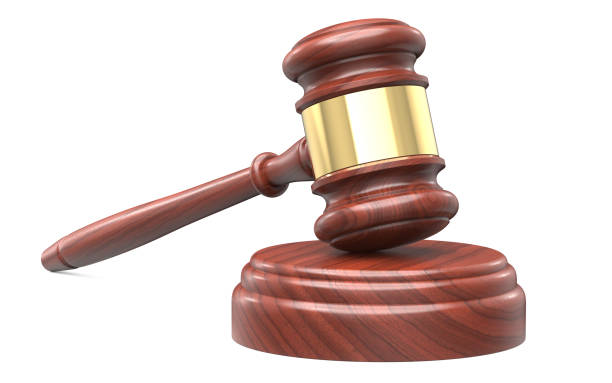What is the restriction on publication of court proceedings under the Family Law Act?
Generally, Court decisions are accessible to the public to ensure that they remain transparent in their decisions. Section 97 of the Family Law Act 1975 (The Act) provides that the open court should hear all proceedings unless a court decides otherwise.
However, family law proceedings are of a special nature and often involve private family matters and children. Hence, Section 121 of the Act recognises a family’s right to privacy and punishes persons that publish proceedings that identify parties or witnesses involved in family law proceedings. Section 121 falls under Part XV – Miscellaneous of the Family Law Act.
This article discusses the restriction on publication of court proceedings under the Family Law Act.
Section 121: Publication of Family Law Proceedings
Section 121 of the Act imposes a restriction on the publication of any part of family law proceedings. The provision makes it unlawful to publish information that identifies any person who is a party to such proceedings or otherwise associated with the proceedings.
The reason behind this prohibition is to protect the privacy of individuals and families, especially in matters that involve children. Section 121 imposes a restriction on publication of court proceedings that is likely to identify a person who is a part of of the proceedings. This includes:
- Names, titles, pseudonym, or aliases of a person,
- Residential or work addresses,
- Physical description,
- Employment or occupation engaged in, profession or calling pursued, or honorary position held by a person,
- The relationship of the person to other individuals such as relatives or friends,
- The recreational interests or political and religious beliefs of the person, or
- Any property the person owns or has any association with.
This information is sufficient to identify a person to the public. The restriction on publication of court proceedings also includes an account of proceedings that is accompanied by pictures of the person or an audio recording of the person’s voice.
What is “Publication”?
“Publication” under Section 121 of the Act includes publication in a newspaper or periodical, on a radio broadcast or television, or by other electronic means. It is worthy to note that the restriction includes publication on social media.
In the recent case of Suris & Suris [2021] FedCFamC1F 1, Justice Carew considered a serious breach of Section 121 committed by a father. In this case, the father made numerous social media posts about the proceedings and posted text messages from the children.
Justice Carew saw that it was appropriate to refer the father to the Australian Federal Police so that they could consider whether he should receive criminal prosecution for breach of Section 121.
Hence, anything that you publish in a newspaper, broadcast on radio or television, or post on social media can be part of evidence to prove that you have committed an offence under Section 121.
Exceptions on the Restriction on Publication of Court Proceedings
There are some circumstances where it is permissible to make a publication. There are a number of exceptions to the restriction on publication of court proceedings provided under Section 121(9) of the Act. The exceptions include:
- The communication of documents to a person concerned for use in the proceedings,
- The communication of documents to authorities responsible for the welfare of children,
- The communication of documents for the purpose of disciplining members of the legal profession,
- The communication of documents for the purpose of obtaining a grant of legal aid,
- The publication to a person who is a member of a profession, in connection with the practice by that person of that profession, or in the course of any form of professional training in which that person is involved, or
- A publication that the court has approved.
Penalties and Prosecuting the Offence of Restriction on Publication of Court Proceedings
The maximum penalty for this offence is one year imprisonment. Proceedings for this offence can only commence with the consent of the Director of Public Prosecutions. In addition, where this Section is violated, the Court may make orders requiring the person to remove the material and to refrain from publishing any further material.
Case Law: Sandex & Bondir [2019]
The case of Sandex & Bondir [2019] FamCAFC 71 (court-ordered pseudonyms) shows the operation of Section 121. The Court warned a mother of breaching Section 121 because she showed court documents to a person who was not a part of the court proceedings.
This case involved a mother who unsuccessfully appealed an order dismissing her application seeking leave to institute parenting proceedings regarding her teenage children. During the proceedings, she showed court-ordered reports to a woman who was not a party to her case and as a result received a warning from the judge about her actions constituting a breach of Section 121.
Judge’s Verdict
The judge went on to explain the seriousness of the restriction on publication of court proceedings in family law:
“Under the Act, the court is very, very strict on protecting the privacy of parties, particularly children, to proceedings and not allowing publication, which has got a very broad interpretation, of anything that would enable parties or children to be identified unless the court has consented to that taking place… Now, the Act is very serious in this, and it deposes that anyone who does so commits an offence punishable upon conviction by imprisonment for a period not exceeding one year. That’s how seriously the court takes it.”
The mother relied on Section 121(9)(f)(i) of the Act which allows publication to a recipient who is “a member of a profession, in connection with the practice by that person of that profession or in the course of any form of professional training in which that person is involved”.
She argued that she showed the documents to the woman so that she could undertake their “critique”. However, the judge did not find that the mother had proven that the woman she had shown the documents to actually fell into this category.
However, while the offence is punishable with imprisonment up to a year, the judge was not convinced that the mother had done so in any kind of malicious or deliberate purpose. Instead, a warning was given to prevent her from making further breaches in future. However, individuals who intentionally violate the restriction on publication of court proceedings may face serious charges for the offence.
In addition, while “publishing” refers to publishing to the “public”, or sharing information to a large group, it is worthy to note that this case shows that the offence includes even showing documents to a single person.

Seeking Legal Advice
If you wish to file a case on family law matters but are hesitant to do so for fear of your private information becoming public, know that Section 121 of the Act guarantees your right to privacy.
JB Solicitors also has a leading team of experienced family lawyers that can help with your situation. We offer legal representation and expert family law advice tailored to your needs.
Do you have any more queries on the restriction on publication of court proceedings? Contact us today.
